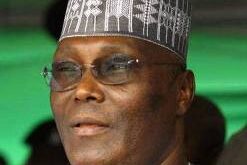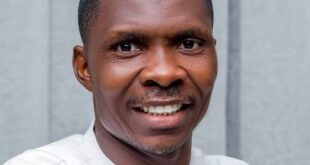By Young Erhiurhoro, Warri
The time has come for a saviour to emerge in the political landscape of this country to fully represent the interests of the oppressed in the different communities across the nation.
Talking about the oppressed in this case, we mean the minorities and also those at the lowest ebb of governance, which can be described as the grassroots or the local populace. Without doubt, since the pro-independence political trials of Nigeria’s democracy, till date, there has been social injustice, political marginalization, economic imbalance, nepotism, favouritism and other social vices and corrupt practices being perpetuated against the oppressed in Nigeria by the so-called majority groups.
This is undoubtedly true in the political history of the country. Their voices are not heard anywhere in the realms of government, being it the legislature, executive or the judiciary. Their interests are never represented in the three arms of government despite all the peaceful protests, the media battles on pages of newspapers, television and other social media networks by those that could be regarded as their leaders or representatives in the government.
To even worsen the situation of the oppressed in this country, their voices are not also heard in the three tiers of government as well. That is, the federal, state and the local governments. They’re politically marginalized by tools of government and economically shortchanged for the single fact that, they are minorities and therefore fall in the group of the ‘oppressed.’
On a serious note, all the views and opinions I’m about to share in this short piece are personal and do not have anything to do with communal or group consensus on certain issues in this discussion. Therefore, to drive home my cogent points of arguments and reasoning as portend in this discourse, I want to use Evwreni kingdom as a practical case study in the above issue raised in this article.
First, Evwreni is a recognized kingdom or according to the writings of Professor Peter Ekeh in the book, ‘History of the Urhobo People of Niger Delta,’ Evwreni is a cultural unit in Urhobo ethnic nationality, which is presently located in Ughelli North Local Government Area of Delta State of Nigeria. As a kingdom, it has two major communities or sub-kingdoms of Unenurhie and Evwreni.
Unenurhie community has two major quarters of Enurhie and Uruwheru, and other villages or communities under it. The same way, Evwreni has three major quarters of Uneni, Okpawha and Urevwe and other villages or communities under it. All these quarters and communities combine to make up the Evwreni kingdom. Don’t forget, a single tree can’t make a forest.
In retrospect to the above issues of righting the wrongs against the oppressed, the first noticeable wrong done to the Unenurhie people by the Evwreni people was to politically group Unenurhie as a community but with the status of a quarter, like Uneni or Okpawha. In this case, if there’s anything to be shared, it’s always shared among four quarters, with Unenurhie regarded as one. This is a cultural aberration against the Unenurhie people.
Secondly, the issue of the clan head of the kingdom is the case of a keg of gun powder, ready to explode. From oral history, the forebears of Unenurhie, Evwreni (in Urhobo), Enhwe and Emede (in Isoko) migrated from Benin kingdom during the reigns of the Ogiso dynasty and first settled in Elele-Amiri in present Rivers State. They again migrated from there as a result of internal unrest through the Niger River and first anchored at Enhwe and later at Unenurhie. In all these journeys and migrations, they were led by Usu, the eldest (Odion in Benin language) in the group, who was coincidentally, the founder of Unenurhie. From Unenurhie, the founder of Evwreni, Ewurhu, a talented hunter and a younger brother to Usu, went on hunting expedition to the northern side of Unenurhie where he killed an elephant (Eni), which was used to form the name, ‘Evwreni’, meaning, the village of elephants
According to semantic analysis, ‘Odion’ in Benin language means eldest or a leader. Therefore, the other members of the fleeing group recognized Usu as their Odion or leader. During the pre-colonial times in Nigeria, the recognized traditional or royal stool in Evwreni kingdom, by the British colonial government, was the Odion, who was perpetually stationed at Unenurhie as their culture demands. This was why HRH, Avava from Unenurhie was the gazetted clan head of the kingdom in the 60s.
However, all these laid down traditional and cultural arrangements by the founding fathers of the kingdom were later manoeuvred when late Chief Mukoro Mowoe, an Evwreni foremost leader became the president general of the Urhobo Progress Union (UPU) to favour his own people of Evwreni.
How did Mowoe achieve this? First, the kingdom was named Evwreni kingdom instead of Unenurhie kingdom which was supposed to be the original name according to seniority status. This was done by Mowoe to suit his personal status as Evwreni indigene, who was now Urhobo’s foremost leader. Second, the Odion, which was supposed to be the clan head, became second in command in the traditional government of the kingdom after the stool of the Ovie was duly created and recognized by the government as the clan head.
The traditional stool of the Odion is today not recognized by the state government. Today, the clan head and the clan headquarters are permanently stationed at Evwreni. The Odion which is today known as Odion’Rode of Evwreni kingdom is now relegated to the background and consequently treated as a second class citizen in the affairs of traditional leadership in the kingdom. This is a social injustice of the highest order in modern and advanced societies.
Thirdly, the Evwreni people, to the best of my knowledge, have been marginalizing the Unenurhie people on the political ground since 1960. The same way Unenurhie and Evwreni were wrongly grouped as a kingdom as a result of nepotism and jealousy, the same way they were mistakenly grouped as a ward. Since the creation of the electoral ward years ago, only Evwreni people had been continuously elected as councilor to represent the ward at the local council. No Unenurhie person is ever qualified to be elected as a councilor anytime, any day to represent the ward.
Also, in party administrative structure, no Unenurhie person is ever qualified to be a party chairman in Evwreni Ward. In fact, Unenurhie people are only destined to man only vice or assistant positions in every political party in the ward level.
Not only that, several attempts were made by the Unenurhie people sometime ago to draw government attention to their political plight by way of creating Unenurhie Ward; but all the efforts were thwarted by the Evwreni political heavyweights to make sure that Unenurhie suffers this political marginalization till eternity. Again, of the four polling units that Unenurhie had, Evwreni forcefully removed one unit and added it to their own. At present, Unenurhie has only three units.
Very important, my sole message in this article is to help draw the attention of a God-sent saviour, the government, especially those representing us in the various legislative chambers, to just dip their fingers in the political water to quench our thirst in this critical situation we, the Unenurhie people find ourselves in at the moment. These are issues that call for urgent and prompt attention by the Delta State government to stabilize our cordial relationship and peaceful co-existence.
Since the time of old, Evwreni people were usually placed at advantage against the Unenurhie people in almost every known human endeavour or discipline, which usually put them ahead of Unenurhie people, because Evwreni people were exposed to the opportunities of education and business early enough than Unenurhie people who mainly focused and channeled all their energies to farming. For instance, the likes of Mowoe, Mariere, Obahor, Scott Emuakpor, Odje etc were all Evwreni people that grabbed education and business opportunities very early through contacts with the British missionaries in the country.
In modern times, other Evwreni people like K.K. Kumane, O’tega Emerhor, Oviemo Ovadje, Samuel Adjogbe, Samuel Mariere and host of others started building on the foundation already laid by their foremost leaders. In all these, the Unenurhie people journeyed to distant communities in Ijaw and Itsekiri for fishing and farming activities. They never took education and business seriously in those days. In fact, this became one of the weak points of Unenurhie people, till today, making it difficult for them to contend with Evwreni on issues relating to traditional leadership, political leadership and economic freedom as people of one kingdom.
Therefore, the only available means for the Unenurhie people to regain freedom and independence, identity and human dignity is for a third party which in this case, the government, political activists, human rights lawyers, non-governmental organizations etc to hear the cries, pains and agonies of the people and immediately come to their aid.
In fact, in this case, the struggle is not just only for the Unenurhie people, but for every oppressed group of people across Nigeria. Let me drop my pen with the soothing words of the French statesman, Charles de Gaulle, “I have come to the conclusion that politics is too serious a matter to be left to the politicians.” To Unenurhie people, “If you do not fight your own fight, who will fight it for you?”
Young Erhiurhoro; Kjc is a reporter and a member of the Urhobo Historical Society.
 PH Mundial – Port Harcourt Online Newspaper News Across The Region
PH Mundial – Port Harcourt Online Newspaper News Across The Region




